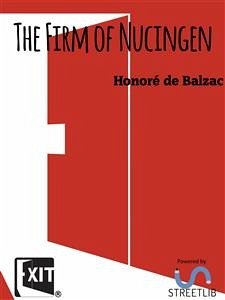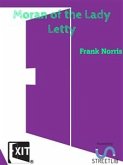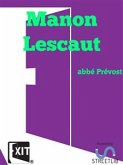THE FIRM OF NUCINGEN
You know how slight the partitions are between the private rooms of fashionable restaurants in Paris; Very's largest room, for instance, is cut in two by a removable screen. This Scene is not laid at Very's, but in snug quarters, which for reasons of my own I forbear to specify. We were two, so I will say, like Henri Monnier's Prudhomme, "I should not like to compromise her!"
We had remarked the want of solidity in the wall-structure, so we talked with lowered voices as we sat together in the little private room, lingering over the dainty dishes of a dinner exquisite in more senses than one. We had come as far as the roast, however, and still we had no neighbors; no sound came from the next room save the crackling of the fire. But when the clock struck eight, we heard voices and noisy footsteps; the waiters brought candles. Evidently there was a party assembled in the next room, and at the first words I knew at once with whom we had to do—four bold cormorants as ever sprang from the foam on the crests of the ever-rising waves of this present generation—four pleasant young fellows whose existence was problematical, since they were not known to possess either stock or landed estates, yet they lived, and lived well. These ingenious condottieri of a modern industrialism, that has come to be the most ruthless of all warfares, leave anxieties to their creditors, and keep the pleasures for themselves. They are careful for nothing, save dress. Still with the courage of the Jean Bart order, that will smoke cigars on a barrel of powder (perhaps by way of keeping up their character), with a quizzing humor that outdoes the minor newspapers, sparing no one, not even themselves; clear-sighted, wary, keen after business, grasping yet open handed, envious yet self-complacent, profound politicians by fits and starts, analyzing everything, guessing everything—not one of these in question as yet had contrived to make his way in the world which they chose for their scene of operations. Only one of the four, indeed, had succeeded in coming as far as the foot of the ladder.
You know how slight the partitions are between the private rooms of fashionable restaurants in Paris; Very's largest room, for instance, is cut in two by a removable screen. This Scene is not laid at Very's, but in snug quarters, which for reasons of my own I forbear to specify. We were two, so I will say, like Henri Monnier's Prudhomme, "I should not like to compromise her!"
We had remarked the want of solidity in the wall-structure, so we talked with lowered voices as we sat together in the little private room, lingering over the dainty dishes of a dinner exquisite in more senses than one. We had come as far as the roast, however, and still we had no neighbors; no sound came from the next room save the crackling of the fire. But when the clock struck eight, we heard voices and noisy footsteps; the waiters brought candles. Evidently there was a party assembled in the next room, and at the first words I knew at once with whom we had to do—four bold cormorants as ever sprang from the foam on the crests of the ever-rising waves of this present generation—four pleasant young fellows whose existence was problematical, since they were not known to possess either stock or landed estates, yet they lived, and lived well. These ingenious condottieri of a modern industrialism, that has come to be the most ruthless of all warfares, leave anxieties to their creditors, and keep the pleasures for themselves. They are careful for nothing, save dress. Still with the courage of the Jean Bart order, that will smoke cigars on a barrel of powder (perhaps by way of keeping up their character), with a quizzing humor that outdoes the minor newspapers, sparing no one, not even themselves; clear-sighted, wary, keen after business, grasping yet open handed, envious yet self-complacent, profound politicians by fits and starts, analyzing everything, guessing everything—not one of these in question as yet had contrived to make his way in the world which they chose for their scene of operations. Only one of the four, indeed, had succeeded in coming as far as the foot of the ladder.









